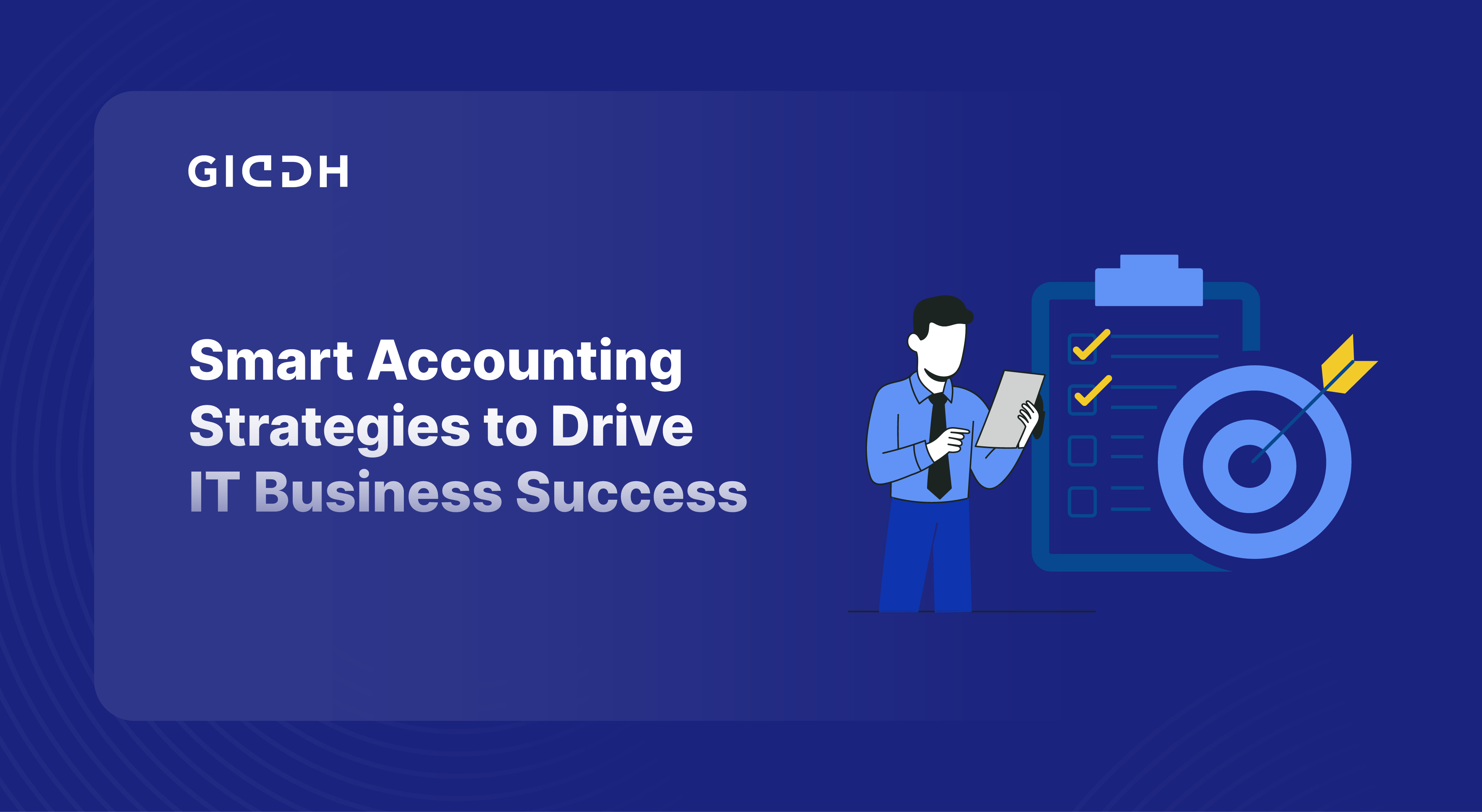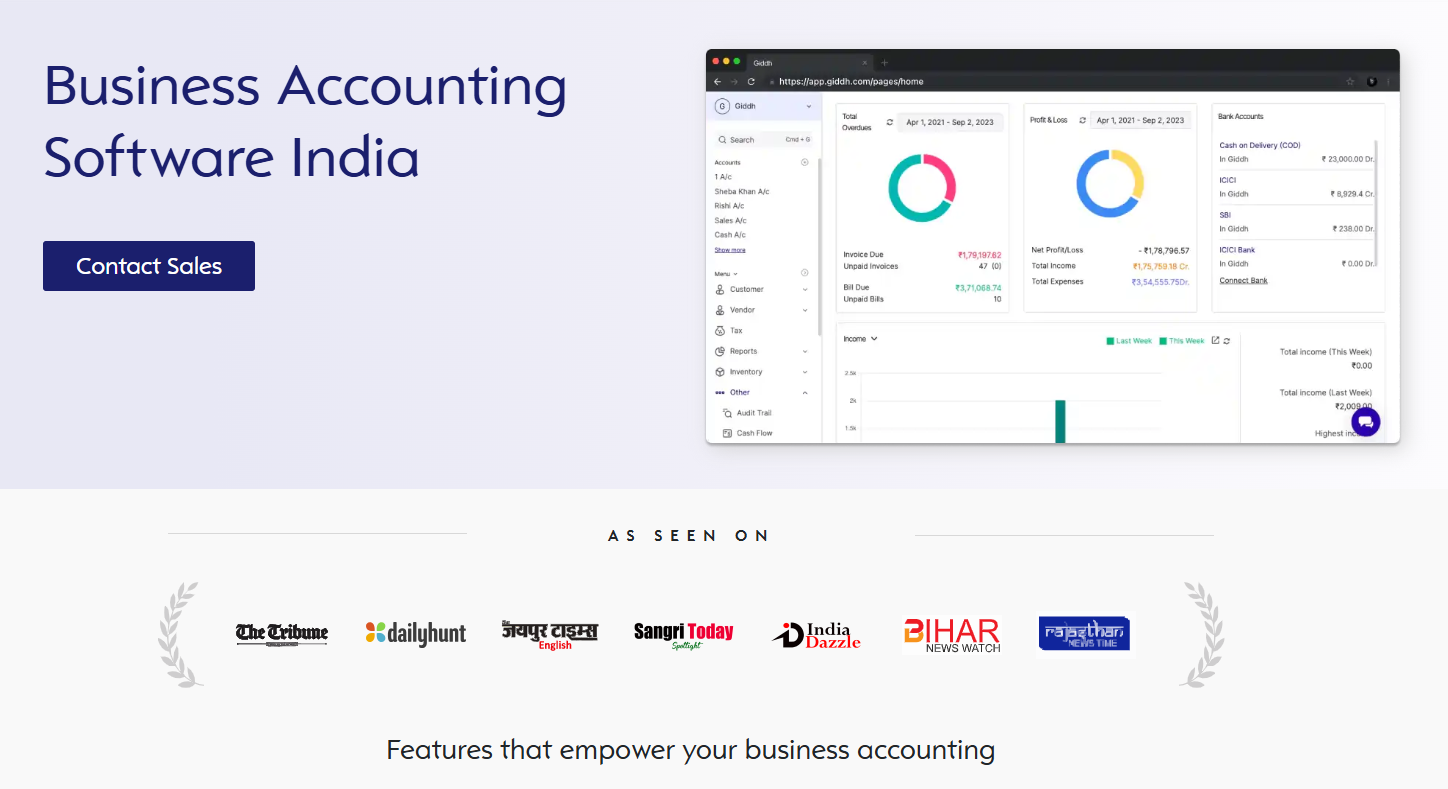How Does Accounting Help In Its Business Management?

Did you know that over 60% of small businesses struggle with cash flow issues due to poor financial management? Accounting isn’t just about keeping track of money—it’s about creating a system that helps businesses thrive.
In fact, studies show that businesses with a clear accounting strategy are 40% more likely to achieve sustained growth and success. But why is accounting so crucial to business management?
Whether you’re running a large corporation or a small business, accounting helps streamline operations, manage resources, and ensure that decisions are based on solid financial data. It's not just about numbers; it's about shaping the strategy and ensuring profitability.
Let’s dive into how accounting plays a central role in the management of any business, large or small, and why it’s indispensable for success.
The Role of Accounting in Business Management
Accounting in business management isn’t just about balancing books; it provides the insights necessary for decision-making, planning, and forecasting. From tracking revenue and expenses to managing cash flow and taxes, accounting is the backbone of any business. But why exactly is it so important?
1. Financial Transparency and Decision-Making
For businesses, having a clear picture of finances is crucial. With accounting in place, business owners can ensure transparency, making it easier to assess financial health and make well-informed decisions.
-
Understanding Profit Margins: By tracking income and expenses, businesses can understand their profitability. This allows leaders to identify areas where costs can be reduced or investments can be made.
-
Cash Flow Monitoring: Accounting helps track how money flows into and out of the business, ensuring there’s enough liquidity to meet short- and long-term obligations.
-
Risk Management: With detailed financial reports, businesses can spot potential risks — such as market fluctuations, overdue accounts, or rising costs — and take steps to mitigate them.
2. Financial Planning and Budgeting
One of the primary functions of accounting in business management is creating detailed budgets. A well-planned budget serves as a financial roadmap for the business, guiding future growth and development.
-
Allocating Resources: Accounting allows businesses to allocate resources effectively, ensuring that funds are spent in the right areas to achieve business goals.
-
Setting Goals: Budgeting also helps businesses set measurable goals, like increasing revenue, reducing expenses, or improving profitability.
-
Forecasting: Accurate accounting data helps predict future financial trends and sales projections, allowing businesses to plan for growth and expansion.
3. Regulatory Compliance
Regardless of a business's size, accounting ensures the company complies with tax regulations, financial reporting standards, and industry-specific rules. Proper bookkeeping ensures that financial records are accurate, up-to-date, and ready for audits or tax season.
-
Tax Filing: Accurate accounting makes tax filing simpler and ensures compliance with government requirements.
-
Avoiding Penalties: Failure to maintain proper financial records can result in fines or penalties from regulatory bodies. Accounting reduces the risk of such occurrences.
4. Performance Measurement
Accounting provides the tools to track and measure business performance. With the correct financial data, businesses can evaluate their operations, identify growth areas, and understand which strategies are working best.
-
Key Metrics: Metrics like Return on Investment (ROI), Return on Assets (ROA), and Gross Profit Margin provide insights into a business’s operational efficiency.
-
Benchmarking: Accounting allows businesses to compare their financial performance against industry standards, highlighting areas for improvement.
How Online Accounting Helps In Financial Management

Accounting in financial management goes hand in hand, providing the data needed to make informed strategic decisions. Financial management focuses on planning, organizing, and controlling financial resources to maximize business performance.
Here’s how accounting plays a role in this:
1. Profitability Analysis
Understanding which products, services, or business segments generate the most revenue is key for businesses. Accounting software records detailed revenue and expense information, enabling management to perform profitability analysis.
-
Cost-Volume-Profit (CVP) Analysis: This tool helps businesses understand the relationship between fixed and variable costs, sales, and profitability.
-
Profitability Ratios: Financial ratios such as the operating profit margin and return on equity (ROE) help businesses assess how effectively they manage costs and generate returns.
2. Cash Flow Management
Cash flow is the lifeblood of any business. Without a proper accounting system, businesses may face cash flow problems even if they are profitable.
-
Tracking Receivables and Payables: Accounting helps track accounts receivable and accounts payable, ensuring timely payments and avoiding overdue bills.
-
Forecasting Cash Flow: A detailed cash flow statement enables businesses to predict future cash inflows and outflows, helping prevent cash shortages.
3. Debt Management
For businesses that use loans or lines of credit, managing debt effectively is crucial. Accounting helps track and organize debt-related transactions, ensuring timely payments and optimal credit use.
- Interest Expense Tracking: Keeping an eye on interest paid and outstanding balances ensures businesses are not over-leveraged and are using their loans effectively.
Accounting for Small Businesses
Small businesses face unique accounting challenges. Many small business owners juggle multiple roles and may not have a dedicated accounting team. Here’s how accounting can help small businesses streamline operations and ensure long-term success.
1. Streamlined Operations
Small businesses often operate with limited resources. A solid accounting system ensures that resources are used efficiently, minimizing waste and maximizing value.
-
Automating Tasks: Cloud-based accounting software can automate routine tasks such as invoicing, payroll, and expense tracking, saving time and reducing errors.
-
Simplifying Tax Filing: For small businesses, tax filing can be overwhelming. Accounting systems ensure that all tax-related records are kept in order, simplifying the process and reducing the risk of audits.
2. Business Growth and Expansion
Small businesses often need to scale quickly to remain competitive. Accounting helps ensure that, as the company grows, financial operations remain smooth.
-
Securing Loans or Investments: Financial records play a key role in securing funding, whether through loans or investors.
-
Tracking Key Metrics: Accounting provides insights into revenue trends and profitability, helping business owners make informed decisions about expanding their product lines or entering new markets.
3. Managing Profitability and Reducing Costs
Accounting helps small businesses identify where they can improve their profitability. By analyzing expenses, businesses can reduce wasteful spending and focus on areas that drive growth.
-
Identifying Cost-Cutting Opportunities: Analyzing expense categories allows small businesses to cut unnecessary costs without compromising quality.
-
Improving Profit Margins: Accounting data helps small businesses understand how to price their products or services more effectively.
How Giddh Enhances Accounting in Business Management
Giddh is a robust accounting solution that helps businesses manage their finances effortlessly, providing accurate, real-time insights into financial data. Whether you're a small business or a larger organization, Giddh’s cloud-based accounting software simplifies the accounting process, giving business owners more time to focus on strategic growth.
1. Streamlined Financial Management
With Giddh, businesses can track expenses, income, taxes, and more, all in one place. The software enables seamless integration with banks, automating tasks such as bank reconciliations, invoicing, and expense tracking.
-
Real-time Insights: Get instant access to financial data, allowing you to make informed decisions on the spot.
-
Financial Reports: Easily generate detailed financial reports such as balance sheets, profit & loss statements, and cash flow statements.
2. Easy Collaboration
Giddh allows multiple users to access the account, making team collaboration efficient and straightforward. Business owners can assign roles and permissions, ensuring that only authorized individuals have access to sensitive data.
- Secure Data Sharing: Giddh enables teams to work together remotely, with data being secure and easily shareable between accountants, management, and other stakeholders.
3. Tax Compliance Made Simple
Giddh simplifies tax management, ensuring compliance with the latest tax laws and regulations. It helps track GST, TDS, and other taxes, allowing for smoother filing and reporting.
-
GST and TDS Management: Giddh automates GST calculations and generates tax returns that comply with local regulations.
-
Automated Tax Calculations: Forget manual calculations; Giddh automatically computes taxes based on your financial data, reducing errors.
4. Customizable for Any Business
Giddh offers flexible plans tailored to suit businesses of all sizes. Whether you're a freelancer, small business, or large enterprise, Giddh can be customized to meet your unique accounting needs.
-
Custom Invoices: Create and send invoices that match your brand’s identity.
-
Inventory Management: Track stock and manage inventory seamlessly alongside your financial data.
Conclusion:
Accounting is the backbone of business management, providing a structured framework for managing finances, supporting decision-making, and ensuring compliance. Whether you're managing a small business or overseeing a large corporation, solid accounting practices can significantly impact your ability to grow, manage risks, and maintain profitability.
For small businesses, in particular, accounting is a tool for survival, helping streamline operations and giving owners the financial insights needed to drive long-term success. With the right accounting software, like Giddh, businesses can build a strong foundation for sustainable growth and profitability.
FAQ
1. Why is accounting important in business management?
Accounting is crucial because it ensures transparency, supports financial decision-making, and helps businesses plan for future growth. It helps track revenue, manage expenses, and maintain financial compliance.
2. How can accounting help small businesses?
Accounting helps small businesses by streamlining financial operations, simplifying tax filing, tracking cash flow, and providing insights into profitability and cost management.
3. Which accounting software is used in India?
Popular accounting software in India includes Tally, QuickBooks, Zoho Books, and Giddh. These platforms enable businesses to manage invoicing, expenses, and taxation effectively.
4. What is the difference between accounting in business management and financial management?
While accounting focuses on recording and reporting financial data, financial management uses this data to make strategic decisions about resource allocation, investment, and profitability.


